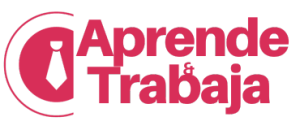How to Research a Company for a Job Interview: Tips to Impress and Succeed
Discover how to research a company for a job interview and stand out from other candidates.
Walk into your next interview fully prepared!
Landing a job interview is exciting, but what you do before stepping into the room often determines the outcome. One of the most underrated but powerful steps you can take is researching the company thoroughly.
Knowing the organization’s values, goals, culture, and recent developments shows that you’re not just looking for any job — you’re seeking this job.
It also helps you tailor your responses and connect with the interviewer more meaningfully.
In this article, you’ll learn how to research a company for a job interview in a focused, effective way — and why doing so can set you apart from other candidates.

1. Start With the Company Website
Begin your research with the company’s official website. This is where you’ll find foundational information: the company’s mission, history, products or services, leadership team, and contact details.
The “About Us” page is especially useful for understanding the organization’s identity. Look for vision and value statements, as they often hint at the company’s priorities and internal culture.
Explore their blog or newsroom section too. Here, you’ll find recent press releases, achievements, or new initiatives.
These updates can become valuable talking points during your interview — especially if you can relate them to your own skills or goals.
2. Check Social Media Channels
Today, a company’s social media presence speaks volumes. Scan through their posts on platforms like LinkedIn, Twitter, Facebook, and Instagram.
What kind of tone do they use? What events are they promoting? How do they interact with followers?
Pay close attention to LinkedIn. Not only is it a professional platform, but it often features company updates, job postings, employee highlights, and leadership thought pieces.
Reading through a few posts can give you a sense of the company’s current focus and how they present themselves to both clients and candidates.
3. Understand the Industry and Competitors
Knowing about the company is essential, but understanding the industry they operate in is next-level preparation.
Research the market trends, major competitors, and recent changes affecting the industry. This background helps you speak intelligently about the business environment the company is navigating.
You can find this information through industry reports, news sites, or trade publications.
Mentioning a recent trend or challenge during the interview and asking how the company is responding to it shows initiative and strategic thinking.
4. Read Employee Reviews and Experiences
Websites like Glassdoor, Indeed, or Comparably offer insights into employee experiences.
Look for recurring themes in reviews — both positive and negative. Are people proud of the work culture? Do they mention opportunities for growth or flexibility?
Take these reviews with a grain of caution — one person’s experience may not reflect the whole truth — but patterns are revealing.
Understanding how employees feel can help you decide if the company is the right fit and prepare questions about the culture during the interview.
5. Research Your Interviewers
If you’ve been given the names of the people interviewing you, take time to learn about them on LinkedIn or the company’s team page.
Find out their roles, backgrounds, and possibly even some shared interests or values.
Bringing this knowledge into the conversation (without being intrusive) shows respect and preparation.
For example, you might mention a recent article they shared or reference a project they led. This kind of personal connection can leave a strong impression.
6. Look Into Financial Health and Growth
If the company is public, review its investor relations page or recent earnings reports. If it’s private, you can still search for news articles or funding announcements.
Understanding the company’s growth, profits, or challenges can shape your responses and show that you’ve done your homework.
For example, if the company recently expanded into a new market, you might say, “I noticed your recent expansion into South America. I’d love to contribute to growth initiatives like that.”
Conclusion
Researching a company before a job interview is more than a task — it’s a strategy. It shows your genuine interest, helps you connect with the interviewer, and gives you confidence in the room.
By taking time to explore the company’s website, social media, culture, leadership, and industry, you’re not just preparing for an interview — you’re preparing to win the job.
Make research your secret weapon, and let your knowledge speak louder than your resume.





